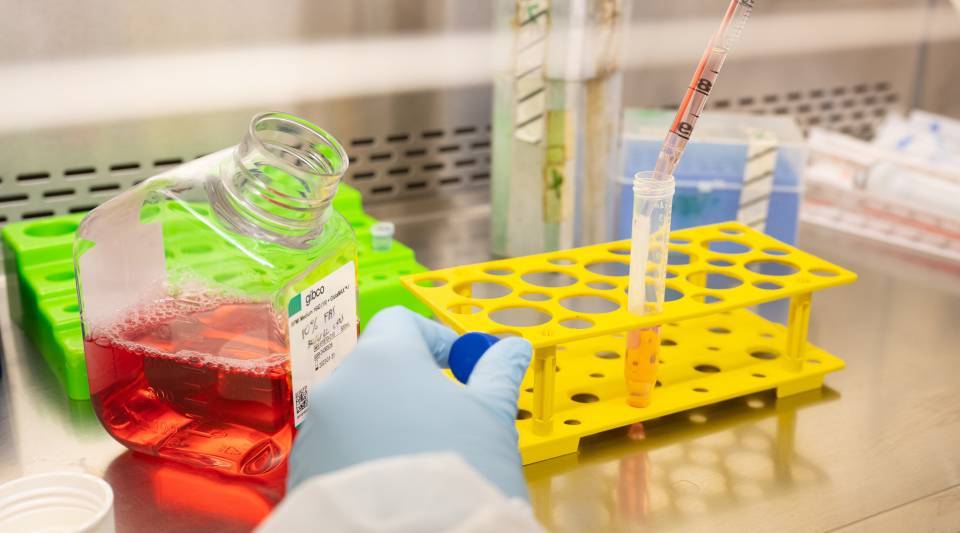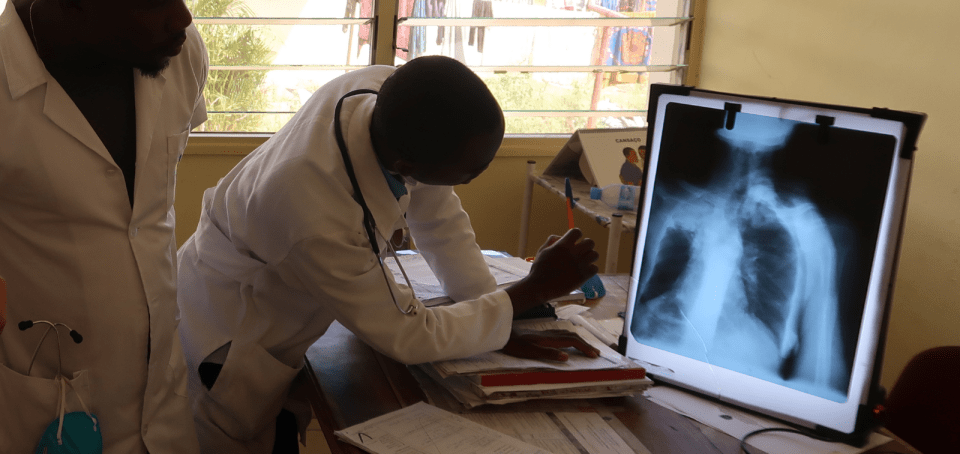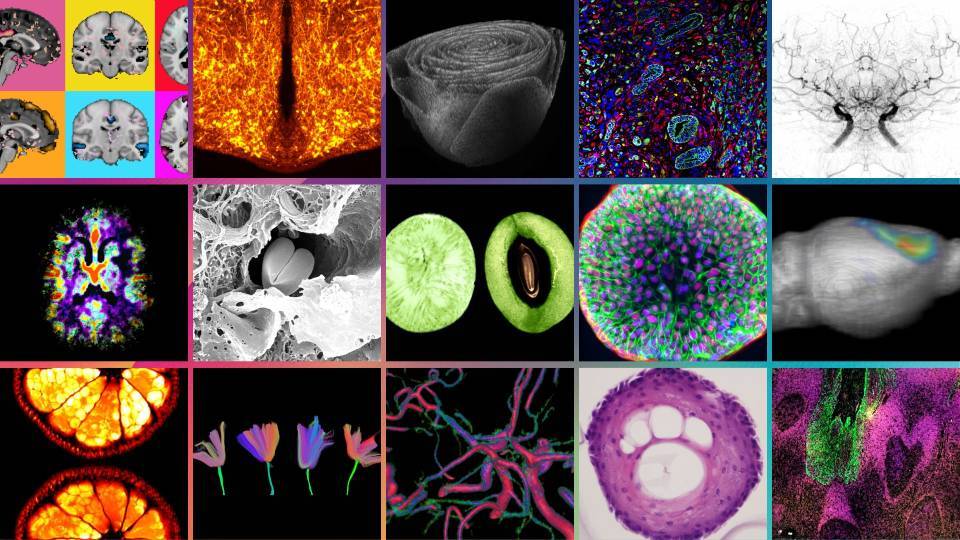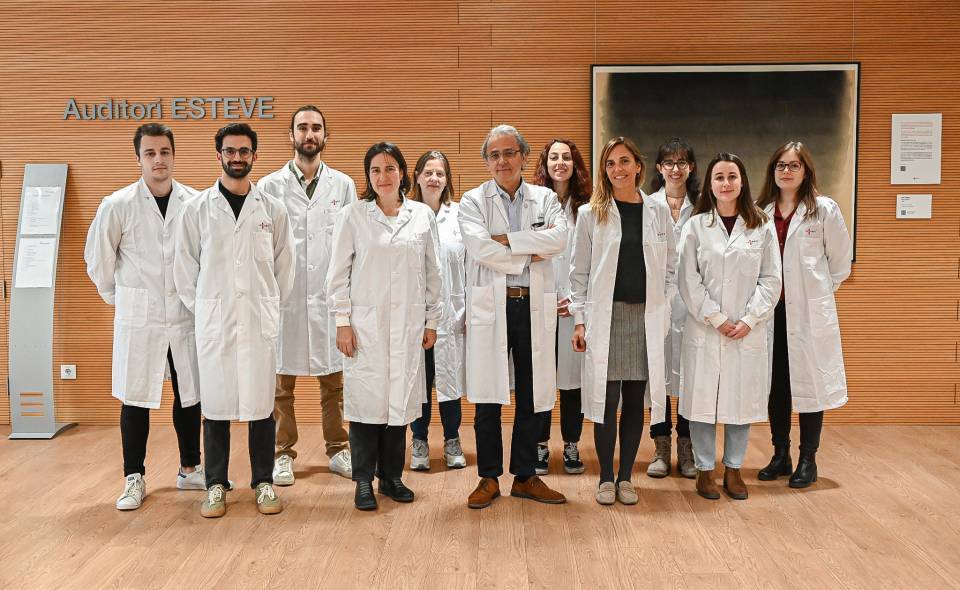IDIBAPS has achieved a historic milestone in 2024 by collecting and allocating over one billion euros for biomedical research since its establishment in 1989. This funding is supplemented by the structural support it receives each year from the Government of Catalonia (Generalitat), which amounted to nearly seven million euros in 2023.
A bit of history
In 1989, Joan Rodés, one of the most prestigious hepatologists and scientists in the world, founded the Hospital Clínic Foundation for Biomedical Research (FCRB) in partnership with the University of Barcelona. His vision was to professionalise, promote and expand the research carried out at Hospital Clínic in Barcelona. In 1996, he founded August Pi i Sunyer Biomedical Research Institute (IDIBAPS) with the same goal in mind, once again with the University of Barcelona. The mission was to conduct translational research, meaning that questions arising at the patient’s bedside are answered in the laboratory and progress made in the laboratory is quickly transferred to patient care.
Over the years, IDIBAPS has become one of the most important biomedical research centres of excellence both in Catalonia and in Spain and has won international recognition.
In 2023, the FCRB and IDIBAPS merged to become the Fundació de Recerca Clínic Barcelona-Institut d’Investigacions Biomèdiques August Pi i Sunyer (IDIBAPS). A nonprofit foundation, its board of trustees includes representatives of the Catalan Ministry of Health, the Catalan Ministry of Research and Universities, Hospital Clínic and the University of Barcelona.
Over 47,000 scientific articles published
The one billion euros collected have enabled IDIBAPS to produce knowledge across a wide range of disciplines. The foundation has published over 47,000 scientific articles since its inception, improving our understanding of the main diseases in our environment and paving the way to tackling them more effectively. This research has yielded new therapeutic targets, treatments, protocols and clinical guidelines to improve patients’ quality of life. Several companies have also been created to transfer the knowledge generated to the productive sector of society. Twelve of these companies are still active today.
With around one hundred multidisciplinary research groups and six technological platforms, IDIBAPS also trains junior research staff and facilitates their professional development. Approximately one hundred doctoral students graduate each year upon completing their doctoral thesis at IDIBAPS.
The Campus Clínic, where IDIBAPS is mainly located, brings together a critical mass of clinicians, educators and researchers working together for the advancement of knowledge in biomedicine and its translation to patient care and society at large.
‘One of IDIBAPS’ strengths is its close connection with Hospital Clínic and the University of Barcelona’, explains Elías Campo, director of IDIBAPS. ‘The hospital’s long-standing research tradition has been passed down from generation to generation. Since the 1970s, doctors at Hospital Clínic have allocated 1.5% of their salary to promoting research’, he adds. This dedication to research is reflected in pioneering training programmes provided by the hospital and IDIBAPS that help the medical staff to balance their patient care work with research activities. This helps to raise the professional role of the ‘clinician-researcher’ from residency to leadership positions.
Sources and types of funding
IDIBAPS receives annual structural support from the Government of Catalonia that accounts for approximately nine per cent of its budget. However, the vast majority of its income comes through competitive funding calls and private contracts, such as those for conducting clinical trials. In recent years, income from donations and patronage activities has increased significantly. For further details on the funds IDIBAPS received in 2023, please see its institutional report.
Since its creation, IDIBAPS has acquired over 560 million euros from competitive calls, signed more than 300 private contracts and benefited from over 115 donations and patronage activities and 31 teaching activities. In total, more than one billion euros have been collected since 1989:

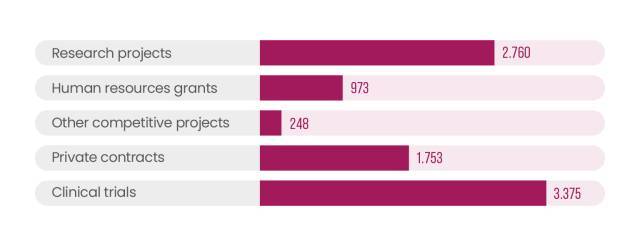
Evolution of IDIBAPS income in recent years

Examples of knowledge generation and impact
IDIBAPS has achieved several milestones throughout its history. Below are some notable examples:
The discovery of a new family of diseases
Autoimmune encephalitis is a group of inflammatory diseases of the central nervous system in which the immune system mistakenly attacks the body’s own proteins. The antibodies’ activity prevents these proteins from functioning properly in the brain, which can cause neuro-psychiatric symptoms to appear such as behavioural changes, psychosis, seizures and cognitive and memory deficits. Josep Dalmau led the team that discovered 11 of the 17 known types of autoimmune encephalitis affecting the central nervous system, four in its stage at IDIBAPS that began in 2011.
Leukaemia genome sequencing leadership
Elías Campo was the co-director of the Spanish genome project within the International Cancer Genome Consortium (ICGC), which focused on sequencing the genome of chronic lymphocytic leukaemia (CLL), the most common type of leukaemia diagnosed in Western countries. The project involved sequencing both the genome and epigenome of leukaemia, providing insights into the chemical changes that occur in genetic material and its regulatory regions. These discoveries changed the view we had of the disease and yielded valuable information for diagnosing and treating it.
Leaders in advanced cellular therapies
The teams at IDIBAPS and Hospital Clínic have developed and validated CAR-T cell therapies for two types of blood cancer: acute lymphoblastic leukaemia and multiple myeloma.
The joint work done by different services and research groups has led the Spanish Agency of Medicines and Medical Devices (AEMPS) to approve CAR-T ARI-0001 as an advanced therapy medicine of non-industrial manufacture for use in patients over 25 years old with lymphoblastic leukaemia resistant to conventional treatments. This was the first CAR-T developed entirely in Europe to be approved by a regulatory agency. A few months ago, AEMPS gave the green light to approve ARI0002 as a non-industrial advanced therapy drug for patients with multiple myeloma resistant to conventional treatments.
IDIBAPS operates as a nonprofit foundation contributing significantly to the foundational sector in Spain, which is critical for addressing general interests and meeting the needs of the community as a whole. IDIBAPS is one of the CERCA research centres of Catalonia and is accredited as a health research centre by the Instituto de Salud Carlos III.

